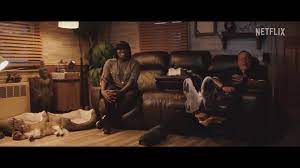Working: What We Do All Day Review 2023 Tv Show Series Cast Crew Online
With this series, Obama’s intention is to talk to people at all levels of the sectors they chose, and in the first episode, service jobs are the focus. In subsequent episodes, he talks to mid-career types, C-suite occupants and people working their dream jobs.
We follow three women around in the first episode: Elba, who works as a housekeeper at New York’s Pierre Hotel; Randi, a home care aide in Mississippi; and Carmen, a delivery driver for Uber Eats in Pittsburgh.
Elba has been doing this job for over 20 years, and she has found that the security of its steady paycheck has allowed she and her husband — who also works at the hotel — to live a solid middle-class life in New York’s outer boroughs. There’s a scene where she brings in food for the staff; they eat and talk about how, despite the physical challenges of this job, it’s a whole lot better than some of the work they did when they first came to the U.S.
Randi wants to help people, which is why she trained to become a home care worker. We see her at the apartment of her first elderly client, getting help with the time-management system from her supervisor. She finds the schedule to be hard because she has a baby daughter and can’t just grab a shift at a moment’s notice at all hours of the day. Obama joins her and her daughter on a supermarket trip, where she shows that a box of cereal costs her basically one hour of pay at her job.
Carmen went to dental school, but a knee injury kept her from doing that as a profession. Right now, she’s in the gig economy, working a few different jobs while trying to get her business as a makeup artist off the ground. Her dream is to be a professional makeup artist for celebrities, as well as TV and film productions.
Working takes a very respectful, reverent look at work in America, from those who are working the jobs many of us take for granted to CEOs of big corporations. What we liked is that the show doesn’t weigh the viewers down with a ton of statistics; there are a few key stats thrown out by Obama in his narration, mainly having to do with the number of workers in service jobs and their relative pay, but they’re there to demonstrate how severe the income gap is in 2020s America.
What the show concentrates on instead is the people doing these jobs, what they actually do in those jobs, and how they struggle — or don’t struggle — with making ends meet. It’s here where Obama makes an effective host. Despite the gaudy resumes of him and his wife Michelle, who both are producers of this series under their extensive deal with Netflix, they both have more than enough institutional memory of living middle-class lives and helping those who are struggling to be able to relate to the people being profiled.
In his narration, Obama doesn’t shy away from how tough it has been for people to even reach a middle-class existence, given the escalating costs of housing, healthcare, food, and other life necessities. And in the segments with Elba, unions and the protections they provide, especially in an environment where jobs get eliminated, is well demonstrated.
We just wonder what we’re going to see in the episodes that have Obama interacting with people higher on the corporate ladder. Will they be more out of touch with the reality of working in this country? Will the people profiled have their own difficulties that are relatable? And how will Obama react there? He’s completely comfortable pushing a cart through the Piggly Wiggly with Randi and her little daughter, but this is also a man who’s been around world leaders, massive celebrities, and the wealthiest people in the world. Will that sheen of relatability fall away when he’s around CEOs?




